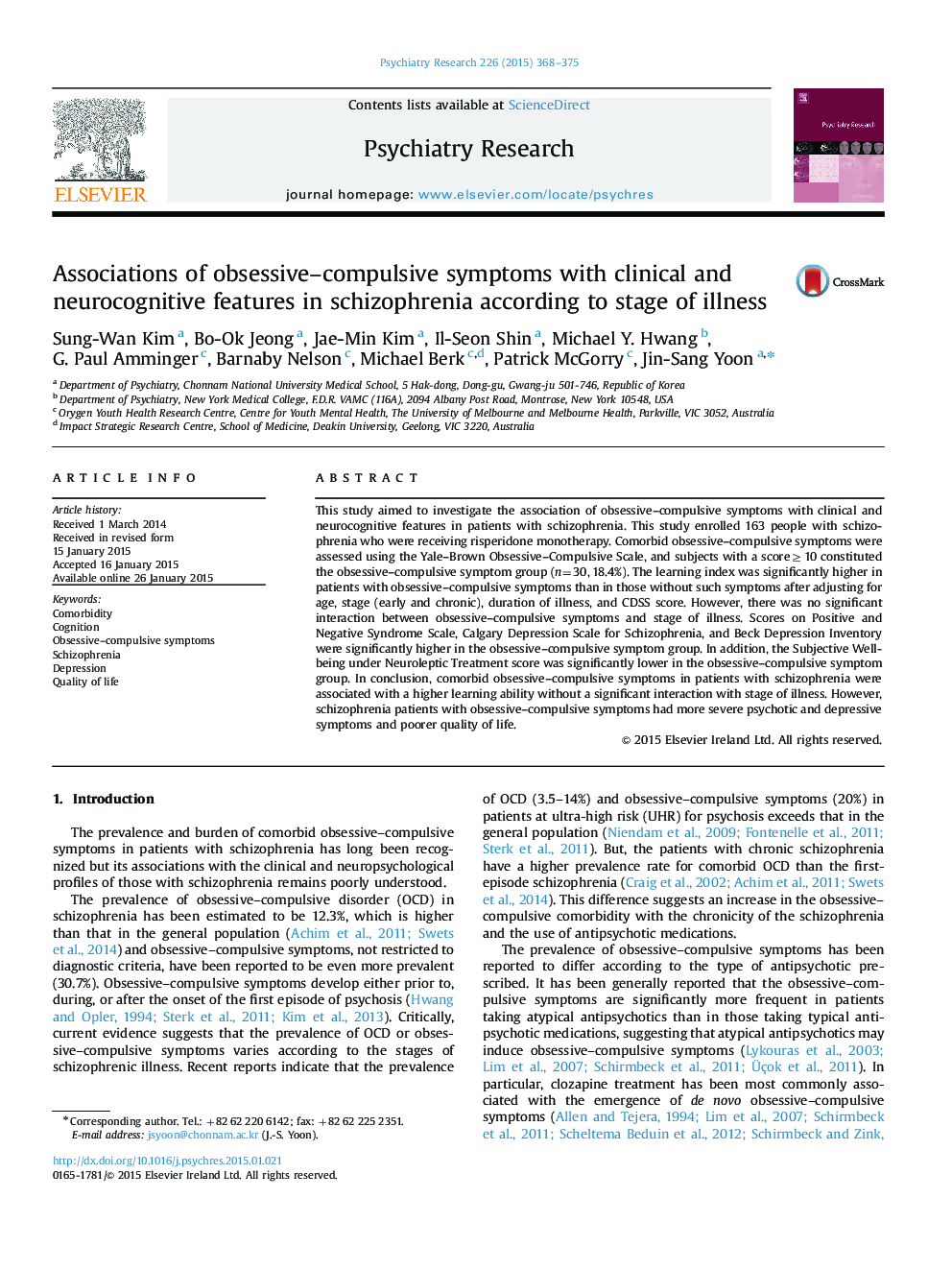| Article ID | Journal | Published Year | Pages | File Type |
|---|---|---|---|---|
| 10303844 | Psychiatry Research | 2015 | 8 Pages |
Abstract
This study aimed to investigate the association of obsessive-compulsive symptoms with clinical and neurocognitive features in patients with schizophrenia. This study enrolled 163 people with schizophrenia who were receiving risperidone monotherapy. Comorbid obsessive-compulsive symptoms were assessed using the Yale-Brown Obsessive-Compulsive Scale, and subjects with a scoreâ¥10 constituted the obsessive-compulsive symptom group (n=30, 18.4%). The learning index was significantly higher in patients with obsessive-compulsive symptoms than in those without such symptoms after adjusting for age, stage (early and chronic), duration of illness, and CDSS score. However, there was no significant interaction between obsessive-compulsive symptoms and stage of illness. Scores on Positive and Negative Syndrome Scale, Calgary Depression Scale for Schizophrenia, and Beck Depression Inventory were significantly higher in the obsessive-compulsive symptom group. In addition, the Subjective Well-being under Neuroleptic Treatment score was significantly lower in the obsessive-compulsive symptom group. In conclusion, comorbid obsessive-compulsive symptoms in patients with schizophrenia were associated with a higher learning ability without a significant interaction with stage of illness. However, schizophrenia patients with obsessive-compulsive symptoms had more severe psychotic and depressive symptoms and poorer quality of life.
Related Topics
Life Sciences
Neuroscience
Biological Psychiatry
Authors
Sung-Wan Kim, Bo-Ok Jeong, Jae-Min Kim, Il-Seon Shin, Michael Y. Hwang, G. Paul Amminger, Barnaby Nelson, Michael Berk, Patrick McGorry, Jin-Sang Yoon,
